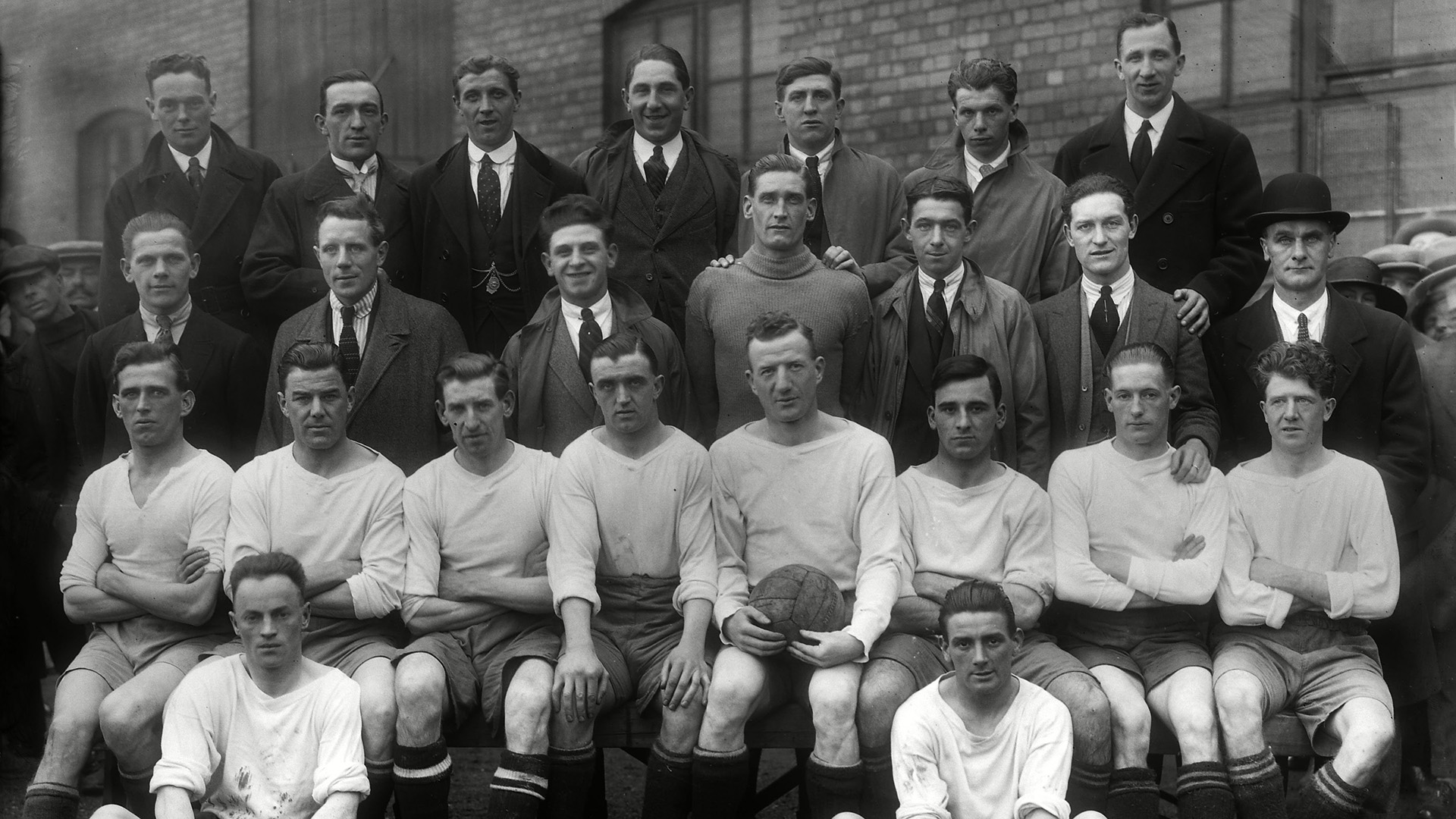
History
A meeting of five young schoolteachers at a restaurant in the Eastville district of Bristol in September 1883 led to the founding of Bristol Rovers. However, the newly formed club initially went by Black Arabs FC and wore black shirts with a yellow sash.
The club’s first competitive game, a friendly fixture against Wotton under Edge, was played on December 1 1883, a few months after that inaugural meeting, eventually playing ten games by the end of the season.
The club became Eastville Rovers in November 1884 and were a founding member of the Bristol and District League in 1892. They participated in the FA Cup for the first time in 1895 and purchased Eastville Stadium, which was to be their home until 1986, two years later.
Adopting the name Bristol Eastville Rovers at the beginning of the 1897/98 season, they became Bristol Rovers in February 1899, a name ratified by the Board of Trade in October of that year.
That same year, they competed in the Southern League for the first time and were crowned Champions in 1904/05.
First-class football was suspended in July 1915 for the First World War, though Rovers played several games during the hostilities. Southern League fixtures resumed in 1919, and one year later, Rovers, along with their fellow Southern League clubs, were elected to the newly formed Division Three of the Football League.
The club’s first-ever Football League match, against Millwall on August 28 1920, ended in a 2-0 defeat, and the club finished in tenth position come the end of the season.
Rovers remained in Division Three throughout the 1920s and 1930s and were forced to seek re-electionto the Third Division in 1938/39, though they were comfortably re-elected at the Football League’s AGM.
Three games into the 1939/40 campaign, though, the season was aborted following the outbreak of the Second World War. While Rovers continued to play friendly fixtures until the end of that season, they did not play competitive football again until 1945/46.
With no revenue being generated, the club was forced to sell its Eastville home to the Bristol Greyhound Racing Association, though they were granted a 21-year lease to continue playing there.
League football resumed in 1946/47, and the dawn of the 1950s saw Rovers, under the guidance of manager Bert Tann, heralded a decade of relative success.
Tann guided the club to a first FA Cup quarter-final in 1950/51, which his side lost to Newcastle United after a replay and led them to promotion to the Second Division in 1952/53.
Rovers reached another quarter-final in 1957/58 when they were beaten by Fulham. The Gas then twice went tantalisingly close to gaining promotion to the First Division, finishing sixth in the 1955/56 and 1958/59 season.
The goalscoring exploits of Geoff Bradford were crucial to the club’s relative success during this decade. He remains the only player to have been capped for England whilst playing for Rovers and ended his career with a record haul of 242 league goals.
While the 1950s could be described as a golden era for the club, the 1960s saw Rovers struggle to make an impact. Although, there were signs towards the end of that decade that things were on the up. A third-place finish in Division Three in 1969/70 was followed by successive quarter-final appearances in the Football League Cup.
Don Megson’s appointment as manager saw him guide the club to success in the short-lived Watney Cup competition in 1972, and in 1974, he led them to second place and promotion to the Second Division.
Following relegation in 1981, it was former England captain Gerry Francis who built the next promotion-winning side, and Rovers finished as Third Division champions in 1990 and played at Wembley for the first time in what was then known as the Leyland DAF Cup. By that time, the club was playing home games at Bath City’s Twerton Park, having left Eastville for the last time in 1986.
Relegated again in 1993, Rovers were beaten playoff finalists in 1994/95. Local hero Ian Holloway began his third stint at the club as player/manager in 1996. He was in charge when Rovers returned to Bristol to play at The Memorial Stadium, just a few months after his appointment.
In 2001, Rovers were relegated to the basement division for the first time in their history. It took the appointment of Lennie Lawrence as Director of Football and Paul Trollope as first-team coach to once more bring success to the blue half of Bristol.
The duo guided Rovers to the Johnstone’s Paint Trophy Final at the Millennium Stadium in Cardiff, where they lost out to Doncaster Rovers. Nevertheless, promotion was achieved a few weeks later with a playoff final win against Shrewsbury Town at Wembley Stadium and one year later to a third FA Cup quarter-final, which ended in defeat by West Bromwich Albion at the Memorial Stadium.
Lawrence and Trollope departed, and Rovers were again relegated at the end of the 2010/11 campaign. Worse was to follow, though, as a few weeks after Darrell Clarke was appointed manager in 2014, Rovers were relegated out of the league after a last-day home defeat by Mansfield Town.
Clarke was devastated but built a squad during pre-season capable of challenging for an immediate return to the Football League. Not only did they challenge, but they beat Grimsby Town in the Conference playoff final at Wembley to achieve promotion at the first attempt.
The following season, Clarke became the first manager to achieve back-to-back promotions with Rovers, as a final-day win against Dagenham and Redbridge ensured a third-place finish and automatic promotion to League One.
In the build-up to that promotion, on February 19 2015, Rovers were acquired by the Jordanian Al-Qadi family, with Wael Al-Qadi becoming club president.
June 2020 saw Wael, with the consent of his family, acquire a controlling stake in Dwayne Sports, which gave him full control over Bristol Rovers (1883) Limited and Bristol Rovers Football Club Limited.
Joe Barton presided over another relegation in 2020/21 but built a side capable of challenging for promotion from League Two and saw them succeed in another dramatic last-day finale. Rovers beat Scunthorpe United 7-0 at the Memorial Stadium to finish in third to clinch a return to League One.
On August 3 2023, Kuwaiti businessman Hussain AlSaeed bought a controlling 55 per cent share in Dwane Sports, the holding company for the Football Club, thus becoming chairman.
With Iñigo Calderón now at the helm and a major revamp of the Memorial Stadium planned, the aim will be to build a squad capable of challenging for the Championship, a level the club has not played at since 1993.
Stats & Facts
Stats & Facts
Records
RECORD CUP VICTORY
6 - 0 v Merthyr Tydfil, FA Cup 1, 14/11/87
RECORD DEFEAT
0 - 12 v Luton Town, Division 3(S), 13/04/36
HIGHEST LEAGUE SCORER IN A SEASON
Geoff Bradford, 33, Division 3(S), 1952/53
RECORD TRANSFER FEE PAID
£370,000 to Q.P.R for Andy Tillson - November 1992
MOST LEAGUE GOALS
Geoff Bradford, 242, 1949/64
MOST LEAGUE APPEARANCES
Stuart Taylor, 546, 1966/80
RECORD ATTENDANCE
38,472 (Eastville) v Preston North End, FA Cup 4, 30/01/60
9,464 (Twerton Park) v Liverpool, FA Cup 4, 08/02/92
12,011 (Memorial Stadium) v West Bromwich Albion, FA Cup 6, 9/3/08
MOST LEAGUE GOALS IN A SEASON
92, Division3(S), 1952/53
RECORD TRANSFER FEE RECEIVED
£2M from Fulham for Barry Hayles - November 1998.
£2M from West Bromich Albion for Jason Roberts - July 2000.
Notable Dates
1883 - Formed as The Black Arabs
1884 - Name change to Eastville Rovers
1892 - Members of Bristol & District League
1895 - Members of Western League
1897 - Professionalism and a new ground at Eastville. Members of Birmingham & District League. Name change to Bristol Eastville Rovers
1899 - Name change to Bristol Rovers. Members of Southern League. Southern League Champions
1920 - Members of The Football League - Division Three
1951 - FA Cup Quarter Finalists
1953 - Division Three (South) Champions
1958 - FA Cup Quarter Finalists
1962 - Relegated to Division Three
1971 - League Cup Quarter Finalists
1972 - League Cup Quarter Finalists
1974 - Promotion to Division Two
1981 - Relegated to Division Three
1986 - Move to Twerton Park, Bath
1989 - Division Three Play-Off Final
1990 - Division Three Champions. Runners up - Leyland Daf Cup
1993 - Relegated to Division Two (Old Division Three)
1995 - Division Two Play-Off Final
1996 - Move to The Memorial Ground, Bristol
1998 - Division Two Play-Off Semi Final. Name change of ground to The Memorial Stadium. Rovers become owners of The Stadium
2001 - Relegated to Division Three
2002 - Lowest ever league placing - 23rd in Division Three
2003 - Finished in 20th place
2004 - Finished in 15th place
2005 - Finished in 12th place
2006 - Another 12th placed finish
2007 - Sixth placed finish in Coca Cola League Two, promoted via the play offs. Johnstone’s Paint Trophy Finalists
2008 - Finished in 16th place in Coca Cola League One
2009 - Finished in 11th place in Coca Cola League One
2010 - Another 11th placed finish in Coca Cola League One
2011 - Relegated to npower League Two
2012 - Finished in 13th place in npower League Two
2014 - Relegation to the Conference
2015 - Promotion back into the Football League
2016 - Promotion to SkyBet League One
2017 - Finished 10th in SkyBet League One
2018 - Finished 13th in SkyBet League One
2019 - Finished 15th in SkyBet League One
2020 - Finished 14th in SkyBet League One
2021 - Relegation to SkyBet League Two
2022 - Promotion to SkyBet League One
Managers
- Alfred Homer 1899–1920
- Ben Hall 1920–21
- Andrew Wilson 1921–26
- Joe Palmer 1926–29
- David McLean 1929–30
- Albert Prince-Cox 1930–36
- Percy Smith 1936–37
- Brough Fletcher 1938–50
- Bert Tann 1950–68
- Fred Ford 1968–69
- Bill Dodgin Sr. 1969–72
- Don Megson 1972–77
- Bobby Campbell 1977–79
- Harold Jarman 1979–80
- Terry Cooper 1980–81
- Ron Gingell 1981 (caretaker)
- Bobby Gould 1981–83
- David Williams 1983–85
- Bobby Gould 1985–87
- Gerry Francis 1987–91
- Martin Dobson
- Dennis Rofe
- Malcolm Allison 1992–93
- Steve Cross 1993 (caretaker)
- John Ward 1993–96
- Ian Holloway 1996–2001 (player-manager 1996–99)
- Garry Thompson 2001 (caretaker)
- Gerry Francis 2001
- Garry Thompson 2001–02
- Phil Bater 2002 (caretaker)
- Ray Graydon 2002–04
- Phil Bater 2004 (caretaker)
- Russell Osman & Kevan Broadhurst 2004 (joint caretakers)
- Ian Atkins 2004–05
- Paul Trollope 2005–10
- Darren Patterson 2010–11 (caretaker)
- Dave Penney 2011
- Stuart Campbell 2011 (caretaker)
- Paul Buckle 2011–12
- Shaun North 2012 (caretaker)
- Mark McGhee 2012
- John Ward 2012–14
- Darrell Clarke 2014–18
- Graham Coughlan 2018–19 (caretaker)
- Graham Coughlan 2019
- Joe Dunne 2019 (caretaker)
- Kevin Maher 2019 (caretaker)
- Ben Garner 2019–20
- Tommy Widdrington 2020 (caretaker)
- Paul Tisdale 2020–21
- Tommy Widdrington 2021 (caretaker)
- Joey Barton 2021–2023
- Andy Mangan 2023 (caretaker)
- Matt Taylor 2023–
